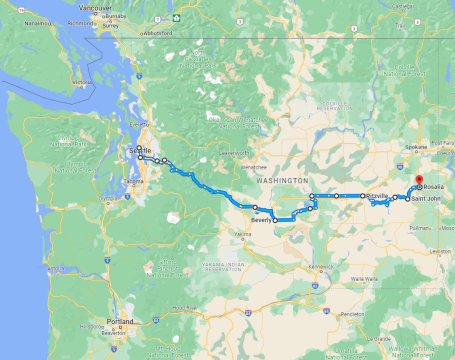* The Tale of Genji - Murasaki Shikibu
Sunburst and Luminary - Don Eyles
Myth of Sisyphus - CamusThe Vindication of the Rights of Women - Mary Wollstonecraft
Do Androids Dream of Electric Sheep - Philip K. Dick
* Persuasion - Jane Austen
* Northanger Abbery - Jane Austen
The Girl With All the Gifts - Mike Carey
The Present Age - Kierkegaard
* The Mysteries of Udolpho - Ann Radcliffe
Agency - Gibson
Lost Moon - Jeffrey Kluger and Jim LovellScience and Relativism - Larry Laudan
Name of the Rose - Umberto Eco* Mansfield Park - Jane Austen
*
Summerland - Hannu RajaniemiPopper vs. Kuhn - Steve Fuller
* Little Dorrit - Charles Dickens
Imaginary Numbers - Seanan McGuire
The Art of Dialling - William LeybournEnquiries Concerning Human Understanding - Hume
Akira - Katsuhiro Otomo
Back on Track (Sound Transit history) - Bob Wodnik
The Adolescence of P1 - Thomas J. Ryan
When Harlie Was One - David GerroldThe Software Arts - Warren Sack
* History of Rome - Livy
Order Without Design: How Markets Shape Cities - Alain Bertaud
* Theory and Reality - Peter Godfrey-Smith
* Gaia - James Lovelock
Exact Thinking in Demented Times - Karl Sigmund
* Wittgenstein - Hans Sluga
* March of the Ten Thousand - Xenophon
* Pursuit of Truth - WV Quine
Logical Positivism - AJ Ayer
Laboratory Life - Bruno Latour and Steve Woolgar
Beowulf - Maria Dahvana HeadleyOrnament and Crime - Adolf Loos
* The World Until Yesterday - Jared Diamond
* The History of Western Philosophy - Russel
The Mere Wife - Maria Dahvana Headley
* The Story of Human Langues - John McWhorterDe Caelo - Artistotle
The Metaphysical Foundations of Modern Science - Edwin Arthur Burtt
The Rise and Fall of Languages - Robert M. W. Dixon
The Structure of Scientific Revolutions - KuhnGalactic Dynamics - James Binney and Scott Tremaine
* Language Familes of the World - John McWhorter
* Ministry For the Future - KSR
* This Is How You Lose the Time War - Amal El-Mohtar and Max Gladstone
* Tinker, Tailor, Soldier, Spy - John le Carré
* Gideon the Ninth - Tamsyn Muir
* Harrow the Ninth - Tamsyn Muir* == audiobook
Bold == would enthusiastically recommend
Italic == reread
Turns out concentrating on anything during a global pandemic is hard.

